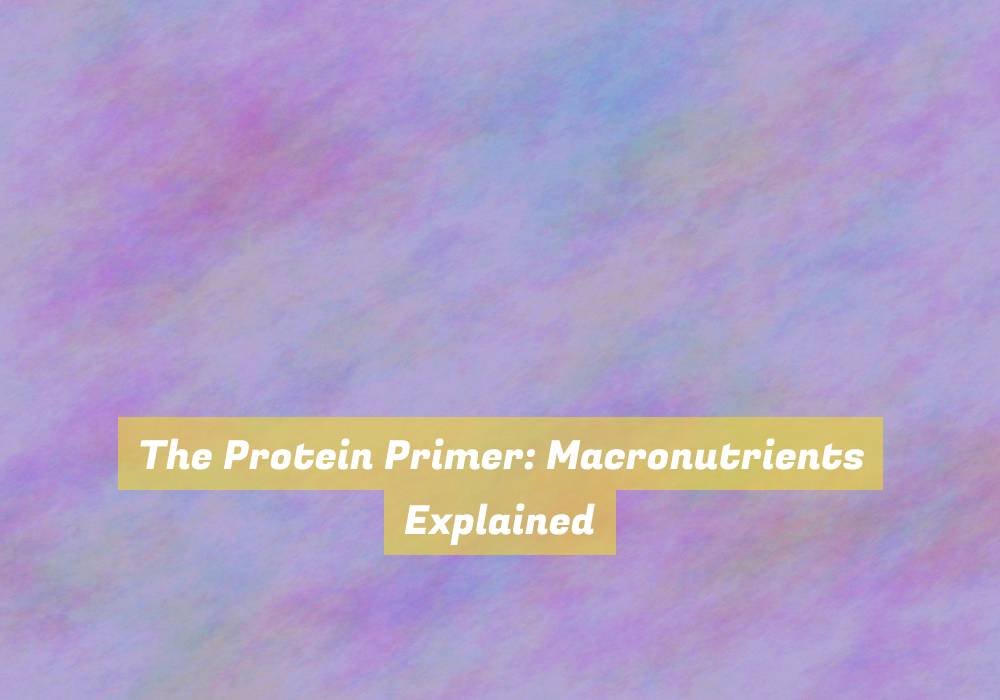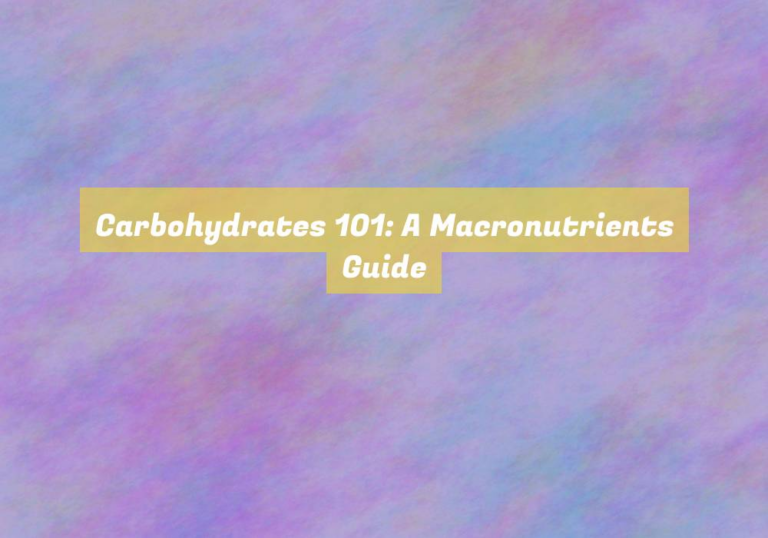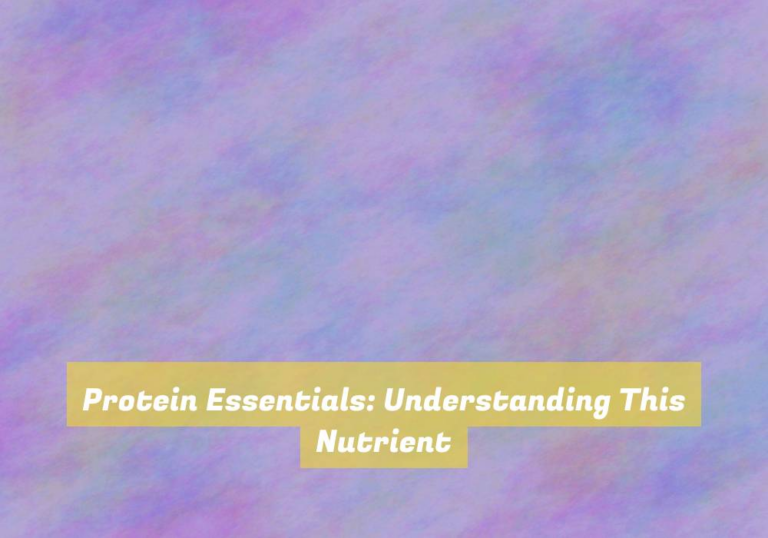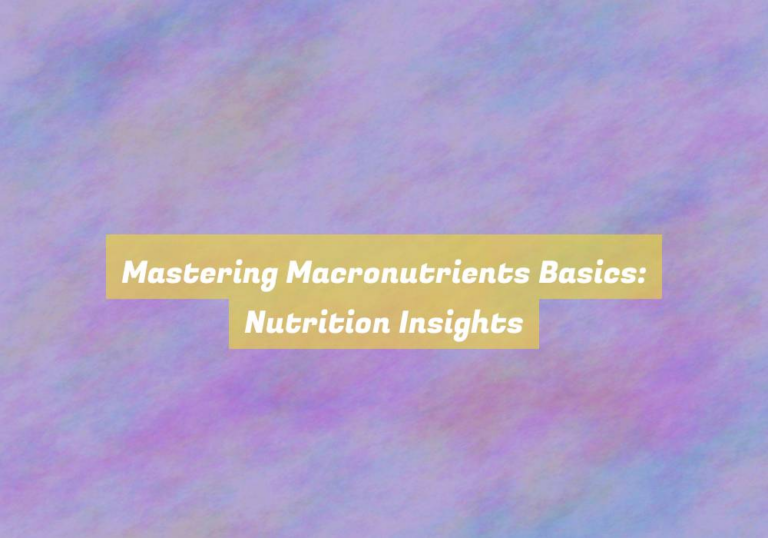The Protein Primer: Macronutrients Explained
Have you ever wondered if the hype around protein as a macronutrient is truly justified? Maybe youG??ve heard conflicting information about its role in your diet and how much you really need.
Understanding the science behind protein and its impact on your overall health and fitness goals is crucial. With so much misinformation out there, itG??s essential to grasp the fundamentals of protein and its significance in your daily nutrition.
As you navigate through the complexities of macronutrients, protein stands out as a key player in your quest for a balanced and healthy diet.
The Science of Protein
Understanding the role of protein in your diet is essential for achieving your fitness and health goals. When you consume protein, your body breaks it down into amino acids, which are the building blocks for tissues, muscles, and organs. These amino acids play a crucial role in repairing and building muscle mass, supporting immune function, and maintaining healthy skin and hair. Additionally, protein is essential for producing enzymes and hormones that regulate various bodily functions.
In terms of fitness, protein plays a significant role in muscle recovery and growth. After a workout, your muscles need protein to repair and rebuild, which is why many athletes and fitness enthusiasts consume protein shakes or meals with high protein content post-exercise. Furthermore, protein can help you feel fuller for longer periods, which can assist in weight management by reducing overall calorie intake.
ItG??s important to consume a variety of protein sources, including lean meats, poultry, fish, dairy products, legumes, and nuts, to ensure youG??re getting a diverse range of amino acids. Whether youG??re aiming to build muscle, lose weight, or simply maintain a healthy lifestyle, prioritizing protein in your diet is crucial for reaching your health and fitness objectives.
Protein and Muscle Growth
After learning about the crucial role of protein in repairing and building muscle mass, itG??s time to explore how protein specifically contributes to muscle growth.
When you engage in resistance training or exercise, your muscle fibers undergo microscopic damage. This damage triggers a process called muscle protein synthesis, where your body utilizes dietary protein to repair and rebuild the muscle fibers, resulting in muscle growth.
Protein provides the essential amino acids necessary for this repair and growth process. Leucine, in particular, plays a crucial role in initiating muscle protein synthesis. By consuming protein-rich foods or supplements, you provide your body with the building blocks it needs to support muscle growth and recovery.
Furthermore, protein consumption can aid in preserving lean muscle mass, especially during periods of calorie deficit or weight loss. It also supports the development of new muscle tissue, making it an indispensable component of any muscle-building or strength-training regimen.
To optimize muscle growth, aim to consume an adequate amount of high-quality protein throughout the day, especially after workouts when your muscles need it the most.
Incorporating Protein in Your Diet
To effectively incorporate protein into your diet, focus on including a variety of protein-rich foods in your meals and snacks throughout the day.
Start your day with eggs, yogurt, or a protein smoothie for breakfast. These options provide a good protein boost to kickstart your day.
For lunch, consider incorporating lean meats like chicken, turkey, or fish into your meals. If youG??re vegetarian or vegan, options like tofu, tempeh, lentils, and chickpeas are excellent sources of plant-based protein.
Snack on nuts, seeds, or Greek yogurt to keep your protein intake steady throughout the day.
For dinner, aim to include a palm-sized portion of protein such as beef, pork, or a meat alternative like seitan or quinoa. Additionally, make use of protein-rich side dishes like quinoa, edamame, or legumes.
Maximizing Protein Benefits
Maximize the benefits of protein by combining it with a balanced exercise routine to support muscle growth and recovery. When you engage in regular physical activity, especially strength training, your muscles require a sufficient amount of protein to repair and grow stronger. Consuming protein within 30 minutes to an hour after your workout can enhance muscle recovery and promote the synthesis of new muscle tissue. Additionally, spreading your protein intake evenly throughout the day, rather than consuming it all in one meal, can optimize muscle protein synthesis and improve muscle retention.
ItG??s also important to pair your protein intake with an adequate amount of carbohydrates. Carbohydrates provide the energy needed to fuel your workouts, which in turn can help you push harder and maximize the benefits of your exercise routine.
Furthermore, staying properly hydrated is crucial for protein utilization and overall muscle function. Water aids in the digestion, absorption, and transportation of nutrients, including protein, throughout your body.
Conclusion
So, now that you understand the science of protein and its role in muscle growth, itG??s time to incorporate it into your diet. Whether itG??s through whole foods or supplements, maximizing the benefits of protein is essential for reaching your fitness goals.
Remember, protein is just one piece of the macronutrient puzzle, but itG??s a crucial one for building and maintaining muscle mass. Keep fueling your body with the protein it needs to thrive!







